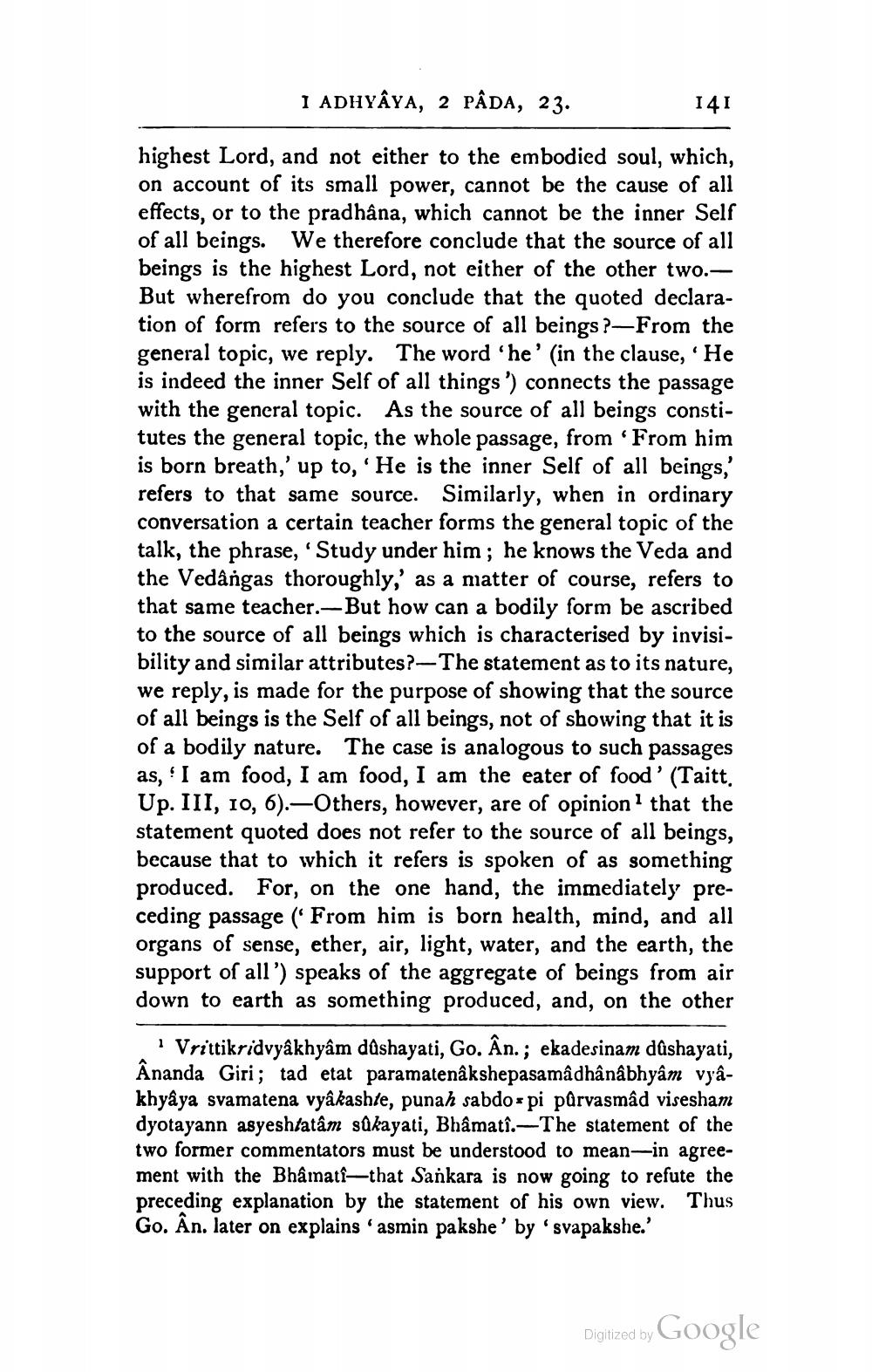________________
I ADHYAYA, 2 PÂDA, 23.
141
highest Lord, and not either to the embodied soul, which, on account of its small power, cannot be the cause of all effects, or to the pradhana, which cannot be the inner Self of all beings. We therefore conclude that the source of all beings is the highest Lord, not either of the other two.But wherefrom do you conclude that the quoted declaration of form refers to the source of all beings ?—From the general topic, we reply. The word 'he' (in the clause, He is indeed the inner Self of all things ') connects the passage with the general topic. As the source of all beings constitutes the general topic, the whole passage, from 'From him is born breath,' up to, 'He is the inner Self of all beings' refers to that same source. Similarly, when in ordinary conversation a certain teacher forms the general topic of the talk, the phrase, 'Study under him; he knows the Veda and the Vedângas thoroughly,' as a matter of course, refers to that same teacher.- But how can a bodily form be ascribed to the source of all beings which is characterised by invisibility and similar attributes?—The statement as to its nature, we reply, is made for the purpose of showing that the source of all beings is the Self of all beings, not of showing that it is of a bodily nature. The case is analogous to such passages as, 'I am food, I am food, I am the eater of food' (Taitt. Up. III, 10, 6).-Others, however, are of opinion that the statement quoted does not refer to the source of all beings, because that to which it refers is spoken of as something produced. For, on the one hand, the immediately preceding passage (From him is born health, mind, and all organs of sense, ether, air, light, water, and the earth, the support of all') speaks of the aggregate of beings from air down to earth as something produced, and, on the other
Vrittikridvyakhyâm důshayati, Go. Ân.; ekadesinam důshayati, Ânanda Giri; tad etat paramatenâkshepasamâdhânâbhyâm vyâkhyâya svamatena vyâkashte, punah sabdo = pi pārvasmâd visesham dyotayann asyeshtatâm sûkayati, Bhâmati.-The statement of the two former commentators must be understood to mean-in agreement with the Bhâmnati—that Sankara is now going to refute the preceding explanation by the statement of his own view. Thus Go. An. later on explains'asmin pakshe' by 'svapakshe.'
Digized by Google




